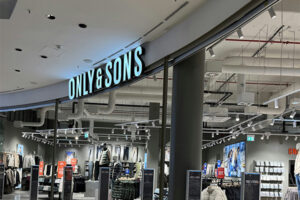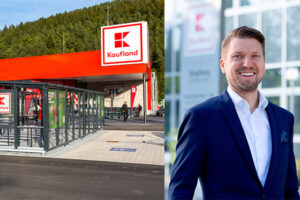ACROSS: Consumers’ initial reaction to the coronavirus outbreak was to hoard products. However, a supply bottleneck never materialized. Why, despite such positive evidence, did consumers once again panic at the beginning of the Ukraine war and hoard sunflower oil, for example?
STEPHAN RÜSCHEN: Basically speaking, people are egoists: some more so, and others less so. However, what fundamentally drives us is security of supply. We want to make sure that we have all the goods we need before someone else has the chance to get them. The positive experiences gained from living in the midst of a pandemic the last two years have not done much to help. Our instinctive, selfish drive is far stronger than any rational consideration.
ACROSS: Are the consumer uncertainties of 2020 and 2022 essentially the same?
RÜSCHEN: At present, it is also becoming apparent that certain products will no longer be available. When consumers hear that, for example, sunflower oil, mustard, and in particular, grains from Ukraine are temporarily in short supply, they apply that information to other products as well, essentially saying “no one can take this away from me”. While it is true that there has been security of supply for the past two years, we still regularly hear that there are problems in the supply chain. Since consumers do not trust global statements about supply security, they behave quite selfishly.
ACROSS: Would you say that consumers have become more panic-prone in general?
RÜSCHEN: Indeed. We simply did not know such situations and the insecurities they entailed. The previous crisis, which was the only one that had ever been experienced by many people, was not a supply crisis, but a financial one. Specifically speaking, everyone is suffering the consequences of the war in Ukraine. Things have definitely not reached the point at which hoarding goods is necessary, but consumers are only rational to a certain extent.
ACROSS: What is the effect of such rather irrational behavior on the relationship between retailer and customer?
RÜSCHEN: Retailers should be very transparent about the situation. That might involve clearly indicating why a product is sold out. Two years ago, every newspaper reported that the only reason pasta and toilet paper were sold out was due to hoarding. Nevertheless, supermarket employees were berated for not being able to adequately order merchandise. Therefore, it is important not to just leave the shelves empty, but to explain that there are delivery problems and what the reasons behind them are.
“Basically speaking, people are egoists:
some more so, and others less so.”
Stephan Rüschen
ACROSS: Have you seen any differences in approach between retailers in that regard?
RÜSCHEN: Retailers that have their customers’ confidence in supply security are the ones that will likely come out on top. If one retailer’s shelves are empty, a retailer that still has the desired products will benefit. I do not foresee a crisis arising between customers and retailers. As a retailer, however, I would explain, as transparently and honestly as possible, why the current situation at a particular store is the way it is. After all, the situation is quite serious. A buyer recently told me that, strictly speaking, he was no longer a buyer negotiating prices, but a procurer simply trying to get goods.
ACROSS: What are the specific areas in which you see supply problems?
RÜSCHEN: At the moment, every area that has to do with grain is of concern. Currently, there is no shortage due to the fact that the harvest is yet to come. Everyone is aware that Ukraine is of great importance in that respect. However, what is unclear is how much can be harvested now and where the next harvest will go. The only thing that is clear is that there will be a shortage for us as well. That may have an impact on other products, as well. One good example of this issue can be seen in the supply chain problem in the paper sector, which is a result of the coronavirus. Products are available, but there are no cardboard boxes in which to package them. In such situations, higher prices are of no help. Products are simply not available, or they cannot be delivered. What lies ahead in the medium and long term is unforeseeable. Therefore, I can understand consumer fears, precisely due to the fact that retailers also have the same concerns. The non-food sector has experienced for many years that goods supposedly arriving from China are no longer available. Now, the food sector is going to be hit as well.
ACROSS: What can retailers learn from the coronavirus era with respect to the current challenges?
RÜSCHEN: The most sensible thing to do is to avoid acting as individual retailers: We should act as an industry and work together to promote security of supply. In other words, one should not try to make a name for oneself by being able to offer individual products. Not only does that have everything to do with the joint assumption of social responsibility, but it has to do with fairness as well.
ACROSS: In addition to security of supply, from a consumer perspective, price increases are a major issue. In terms of communication, what advice do you have for retailers in this regard?
RÜSCHEN: Actually, very few retailers talk about that. They simply increase prices and leave it to the press to report on it. The mechanism is usually the same: For example, if Aldi, the market leader in Germany, raises prices, all other retailers follow suit, but Aldi alone suffers from bad press, because the price increases were not communicated. Here, too, I would clearly focus on transparency and not just rely on the fact that customers are not too familiar with the prices anyway, given the large number of products.
ACROSS: Does the current situation continue to boost discounter sales?
RÜSCHEN: Even if the perception is different, especially in Germany and Austria, the market shares of discounters have been fairly stable over the past decade. There is a lot of talk about Aldi/Hofer and Lidl, so many assume that their market share will increase significantly. In the same way, it is now argued that rising inflation will lead to a (further) increase. I do not expect discounters to be the big winners of the crisis. For one thing, food accounts for only a small share of consumer spending. In Germany, for example, it amounts to 15 percent. Given current inflation, whether a person buys from a discounter or a supermarket does not have that much of an effect. The thing that is currently putting a strain on the bank account is energy prices. Of course, such issues decrease purchasing power, but my hunch is that people are more likely to cut back on non-food items first. Only after that will they cut down on food purchases. However, many industry experts see things differently. In addition – and this is something else we need to consider – supply chain problems are particularly problematic for discounters. A product like sunflower oil generates a lot of sales for discounters precisely due to the fact that they offer fewer products. As a result, such losses are more quickly reflected in their overall sales.
“Retailers that have their customers’ confidence in supply security are the ones that will likely come out on top.”
Professor Stephan Rüschen
ACROSS: In that context: How do you assess the growth of discount giants, such as Tedi, Action, and Pepco? They seem to be profiting from the declining purchasing power, and they present themselves as local suppliers.
RÜSCHEN: The crucial factor lies in their presentation as local suppliers. They are strategically close to customers and are often the only non-food store in many towns. That has rendered them somewhat akin to small, local department stores. They profit enormously from offering the so-called ENO products: “Everybody Needs One”. Those products are characterized by two things. First of all, a relatively large number of consumers actually buy them. Products such as pots and pans, ballpoint pens, and copying paper fall into that category. Second, they are priced at a low level.
ACROSS: In other words, do they benefit from aggressive pricing?
RÜSCHEN: Exactly. The price ranges are so low that they allow risk-free shopping for consumers. The combination of local suppliers and low price ranges gives certain target groups a real shopping experience that cannot be compared to the experience of a trip downtown, but can be compared, to some extent, to that of going to a shopping center. Consumers can be inspired without running the risk of spending too much. There is somewhat of a Primark effect: Anyone can throw as many products into their shopping cart as they want, because the items are so inexpensive that it does not really matter whether they fit or are appealing.
ACROSS: That, however, is in contrast to other trends, such as regional purchasing and sustainability.
RÜSCHEN: Yes, and it is a good illustration of the attitude-behavior gap. We simply do not behave the way we would like to. Everyone believes that sustainability is important, but things are very different when it comes to implementation. However, that does not mean that a person who shops at Action, for example, does not think in a sustainable way. This phenomenon actually builds on the local supply aspect, as well as a certain level of convenience. Of course, many people also have limited budgets, but for most of them, it is simply easier to shop locally for short periods of time and at low prices than to put forth the effort required to find out where a particular product can be purchased that is of high quality and is sustainable. Once again, the majority of people tend to act in a rather selfish manner. To put it less harshly, they simply want to be comfortable when shopping and are usually hybrid shoppers, especially when it comes to sustainability: For certain goods, importance is placed on having a clear conscience; for others, it is secondary.





